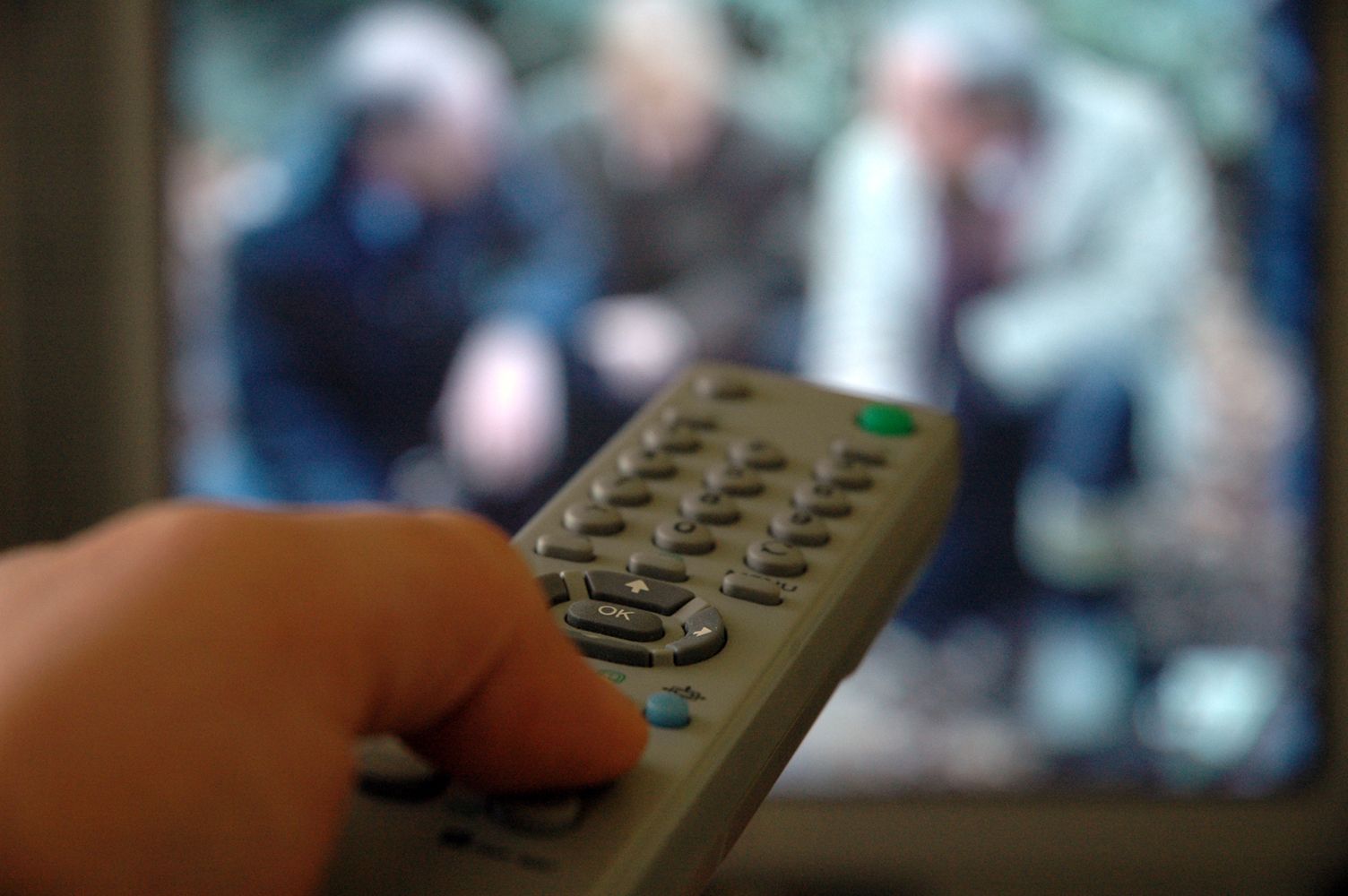6 Things You Might Not Know About Cord-Cutting (Op-Ed)
Is cord-cutting a realistic prospect?

Jeremy Toeman is the CEO of Dijit Media, which develops technologies for people to discover new ways to experience TV shows and movies. This article, adapted from a post on Medium.com, was contributed to Tom's Guide's Expert Voices: Op-Ed & Insights.
The topic of cord-cutting — gaining independence from traditional TV content providers — is always an interesting one, one that waxes and wanes across technology and media outlets over time. In all cases, there are compelling arguments for cord-cutting, and just as there are compelling ones against it.
1. Cord-cutting is on the rise, but that's relative
First, it's important to acknowledge the rising number of people severing the cord is coming after the longest run of cable subscription growth we've ever seen. We hit the peak last year, and are now backing down to some other plateau — but I'm far from convinced that we're heading to an abysmal valley. We might see decline continue for several quarters, but realistically, the rate of decline is virtually meaningless against the business operations of most pay-TV providers.
MORE: 5 Easy Tips for Buying an HDTV
2. Economic recovery is hurting pay TV
This may sound counterintuitive, but I believe much of the decline in subscriptions is related to postrecession recovery — yes, recovery. One thing people spend money on in bad times is home entertainment — it's much cheaper to upgrade to a premium cable package than go to the movies. Now that the economy is doing better, people are reallocating their spending money and choosing to be entertained outside of the home.
3. The press overhypes cord-cutting
I was recently discussing cord-cutting with a reporter, and realized that nobody in the media is going to write a blog post or article entitled "TV: Doing Great!" It's not interesting, not dramatic and wouldn't get page views — therefore, it isn't news. So we have a heap of prominent news outlets with articles written by people who don't necessarily understand the industry about which they are writing (no offense intended — this is one of the most complicated industries). And journalists are incentivized to write dramatic or sensational headlines. "Death of TV" is a good one; "Nobody's Cord-Cutting At All" is not.
MORE: Few Americans Cancel Cable in Favor of Online Video
4. Live TV is well-loved and awesome for most people
I find an amazing correlation between people believing that cord-cutting is huge and thinking that everybody in the world has seen "House of Cards." In fact, they all watched the series the very weekend Netflix released it. That leads to a terrible misperception of how most people watch TV.
The truth in TV-watching comes down to this: Even in households with DVRs (not the majority of U.S. homes, by the way), over half of TV-watching is done live. I personally cannot fathom that behavior, nor the desire to watch more than 4.5 hours of TV per day. But that's closer to national behavior than the actions of someone like myself, who watches virtually everything on his own schedule (and device of choice).
MORE: The Not-So-Secret Recipe to Disrupt TV (Op-Ed)
5. Cord-cutting won't save money for most people
Most analyses on the topic show that à la carte pricing and unbundling will cost consumers more than it saves them. Again, for everyone reading this who thinks most people are like them and only watch two shows at a time (all marathon/binge-style) — you are in the extreme minority of audiences. Buying, for example, "Game of Thrones" on iTunes costs roughly $39 per season. Or you can upgrade to get HBO (which typically comes with a bunch of other channels) and get all three seasons, along with the entire back-catalog of HBO originals for (depending on the provider) typically $10 to $20 (or more) per month. It's a good deal. For a household of four who watch 4.5 hours of TV per day (on multiple TVs in multiple rooms, plus on mobile devices), that's 540 viewing hours per month (or more). If you pay $100 per month for TV, it's averaging less than 25 cents per hour. Not too shabby.
6. Tech companies aren't equipped to replace cable and satellite
I've read numerous reports about how a variety of ambitious startups and tech ventures are negotiating with Hollywood to offer TV in options different from what exist today. Sounds good in theory, but it flies in the face of existing business interests, and more importantly, long term multibillion-dollar contracts. The "big" service providers (Comcast, etc.) all have "most-favored nation" style clauses with the broadcasters that prevent anyone else from buying the programming any cheaper. For anyone, say Intel or Apple, to offer TV cheaper than cable or satellite companies do, they will likely do so at extreme loss. Any vision of any other offering is an unrealistic fantasy.
This article is adapted from the post "Nine Things You Might Not Know About Cord Cutting" on the site LIVEdigitally. The views expressed are those of the author and do not necessarily reflect the views of the publisher. This version of the article was originally published on Tomsguide.com.
Sign up to get the BEST of Tom's Guide direct to your inbox.
Get instant access to breaking news, the hottest reviews, great deals and helpful tips.
Tom's Guide upgrades your life by helping you decide what products to buy, finding the best deals and showing you how to get the most out of them and solving problems as they arise. Tom's Guide is here to help you accomplish your goals, find great products without the hassle, get the best deals, discover things others don’t want you to know and save time when problems arise. Visit the About Tom's Guide page for more information and to find out how we test products.
-
deftonian The article seems kind of desperate. Take this for example:Reply
""Game of Thrones" on iTunes costs roughly $39 per season. Or you can upgrade to get HBO (which typically comes with a bunch of other channels) and get all three seasons, along with the entire back-catalog of HBO originals for (depending on the provider) typically $10 to $20 (or more) per month."
You stated that $39 for the season on iTunes, but the season is about 4 months long. Let's say cable company charges $20 a month for HBO. Now you've paid $80 for that season had you gone with the cable option. You then try to back it up with, "which typically comes with a bunch of other channels". So you're trying to justify it by masking it with other channels that usually play the same things at different times. Or C rated basic cable style movies. I bet what cable companies are affraid of, is that if a-la-carte was introduced, people would realize they watch less TV than they thought and would pay for the few channels they have on their favorites list.
However, I see some points to their fear. I fear that if we go a-la-carte, so many programs and channels would probably cease to exist because nobody will order it. Thus, the premium for the popular channels will probably get high to support the parent companies loss of revenue from the other channels.
-
rwinches Oh Please!Reply
When you don't have it you don't miss it.
Basic $15 cable plus OTA DTV plus Redbox plus Netflix et al is fine.
You can get sports over the internet also. -
bambootoothpick This article is certainly written to make the people, who have never been interested in stream, feel better about themselves. Someone is afraid that the TV watchers who tend not to think out side the box might start thinking inside a new box, "Oh your streaming? Maybe I should too."Reply -
michael908 In Canada point #5 is true. I was planning to get rid of my rogers set top box and cable and get unlimited internet. But the catch is that you have to have a home bundle in order to be eligible for unlimited internet (home phone, internet, and cable). Or you have to pay the "bundle price" in order to get unlimited internet.Reply -
bambootoothpick Michael908, I'm sure you are aware that this is done by the TV companies to influence the customers choices.Reply
Customers need to make choices that impact the companies economically in such a way that the companies respond to our choices.
As long as customers make their choices based on company product manipulation we will never control the destiny of the services used by all people, all the time.
Don't get me wrong, I don't hold my breath for change. I have no belief in it.
-
KelvinTy The only thing I watch on TV is the news channel... Even though the news are total bias and misleading. The only reason why I watch it is because it's a free channel.Reply -
booyaah You basically lost a lot of credibility with me at 2) Economic Recovery.Reply
Newsflash: We are about to go into another economic tailspin if this Syria crap starts another major war.
----
I will agree with 5 though, if you are an existing customer, you will never get a better deal than a new customer and/or without a bundle it sucks. -
booyaah You basically lost a lot of credibility with me at 2) Economic Recovery.Reply
Newsflash: We are about to go into another economic tailspin if this Syria crap starts another major war.
----
I will agree with 5 though, if you are an existing customer, you will never get a better deal than a new customer and/or without bundling, it sucks. All I wanted to do was swap my HD converter for a HD DVR converter and pay the small monthly upcharge but TWC said I couldn't without breaking my bundle. -
happyballz Why is this even posted? Bunch of biased opinions from a person who's business relies on people watching TV shows.Reply
Cable TV is overpriced and full of commercials ... I timed commercial vs show time and on Discovery's channel commercials took 34 minutes of a 60 minute "reality" show.
So I am basically paying to watch commercials... idiotic.

